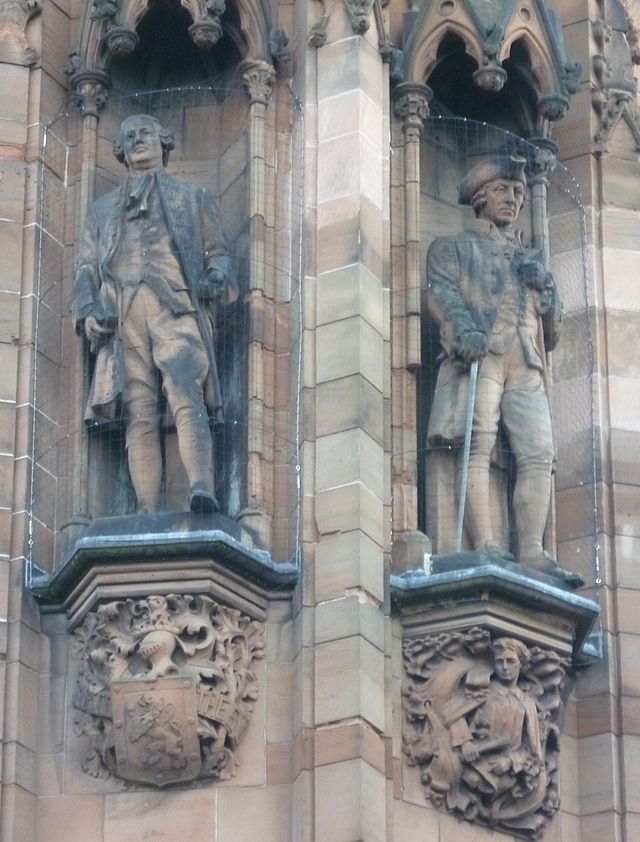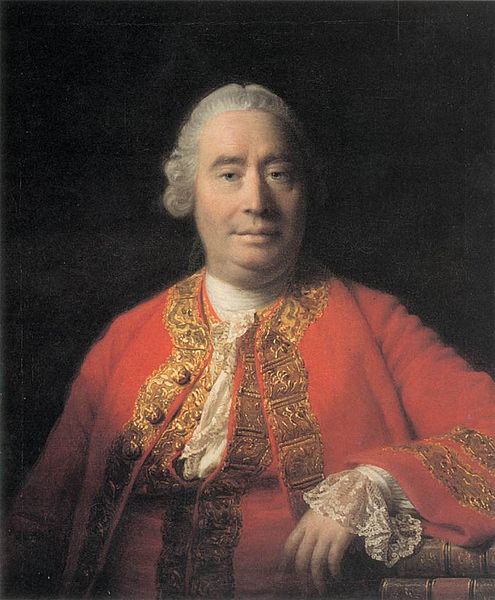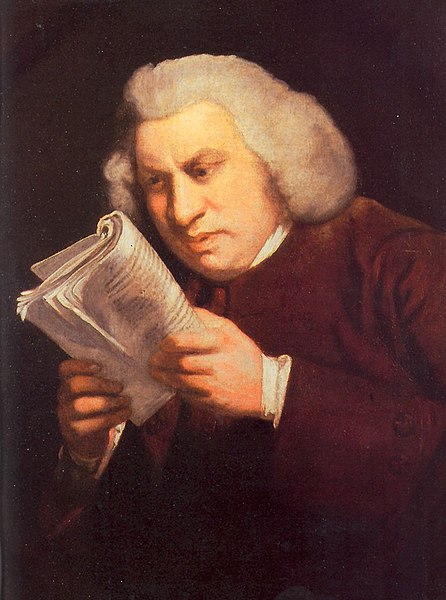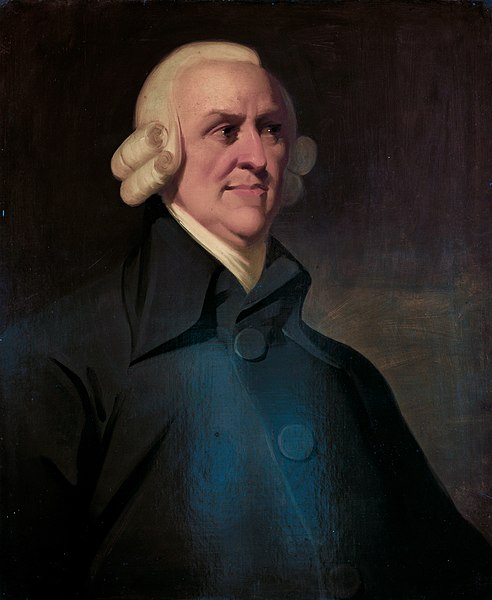What Was the Scottish Enlightenment?
By MONTE STAMPER
What Was the Scottish Enlightenment?

The Scottish Enlightment wasn’t an idea contained just within Scotland. From within Scotland the Enlightenment period had the effect of a cultural boom. Generating famous writers, scientists, and philosophers who challenged the past way of viewing history and historical writing. A step further would be that these Universities that brought together so many different schools of thought helped challenge and bring forth the idea of improvement of the individual but also the individual within a community. Wishing to not only find more factual written history but escape the hold the church and previous authority had once held on the historical narrative. Less expensive education that allowed more individuals from a varied collection of backgrounds helped shape a different way of observing recorded history.
Virtue and honesty for the individual moved to the forefront. That combined with the escape from a more restrictive period were ingenuity and thought was manufactured from select groups. Scotland promoted books and reading. Allowing a larger mass to absorb and understand information as it was changing. This focus on reading with the creation of Societies and Clubs that promoted debate, conversation, and discussion helped allow people of many different walks of life to ask the question why? Importantly enough one question seemed to be why is history recorded the way it’s recorded? Why lean into paradox but instead center on common sense?
What Is Common Sense Realism?
Rooted in the theory of empiricism, the Scottish School of Common Sense was formed to push back against authority that couldn’t be proven. Evidence was the primary goal, as history in many circles had been presented by the church without information to prove. Above all else the club was for the defense of common sense. That view of course was the view they deemed accurate. This effort was to remove emotion from history and classical thinking. Direct or verified information was key, however it wasn’t information that could be fact checked. Religion was seen as a principle not a tangible thing so it’s bearing over thought and recorded idea was in the minds of the Scottish thinkers out of place.
Is it any wonder that events like the protestant reformation moved alongside enlightenment booms like the one in Scotland? The idea was to allow people to read the information and digest it. History was seen as a science. Science and the schools of thought around them were becoming very popular in Scotland. Geology, anatomy, and physics for example could be tested and proved. This was the foundation for how many wanted history to be viewed. The notion of the supernatural or unexplainable worked against the ideas of Enlightenment thinkers. Scotland leaned very heavily into scientific theory. Using the inductive method they wished to dissect history and display it in a way that made practical sense. Rationalizing that history must work like practical science and in this way something can be gained from it. The idea was it must serve a purpose.
Famous Members of the Scottish Enlightenment
Individuals within the Scottish Enlightenment often dabbled in several different schools of thought. History, physcology, medicine, economics, and dozens more. Scotland, a bit out of the European conflicts, was afforded some seclusion and allowed to develop on educational ideas and a way to analyze history in the Universities and meeting places. It would be a travesty not to mention some of the most influential thinkers who altered how we still look at some historical topics. Whether it’s in agreement with some enlightenment thinking or using it as a point of opposition in terms of postmodern historians. These following gentlemen are some of the more well known individuals of the period.
David Hume

Scottish historian, librarian, philosopher and economist David Hume (1711-1776) is perhaps best known for his writing “The Treatise of Human Nature.” Hume practiced and preached the idea of experience, unidentifiable ideas such as divine right or religious interventions were dismissed as he believed all ideas came from nature and were tangible, in some sense. For the period he was seen as a bit radical in his thinking as he outright rejected miracles, which the Catholic Church placed in several historical writings. This challenge called on historians to try to find the evidence and truth according to Hume on these matters.
The idea of examination was key and it can be seen throughout Hume’s perhaps most well known historical writing. This writing is “The History of England”, documenting England’s history from Roman Occupation into the late 1600’s.The book itself is the definition of what we might consider the history of great men. Chronologically it moves from one king to the next. The idea that the monarch is the center of history was criticized by other influential thinkers of the time, including many American writers such as Thomas Jefferson. A major point of contention was the view on the monarchy and the constitutional idea of legal documents governing nations. His own views helped shape his writing as he was accused of not being biased in his historical writing but trying to urge the reader in a direction. The idea of facts being used alongside a historical writing or text to tell a certain narrative is something we still see today.
What is interesting however, in some ways he was ahead of his time. Some of the things he wrote may have been through his lense or opinionated but not entirely wrong. If divine right was an idea he couldn’t get behind he showed the idea of a constitution being evolutionary in the “progress”of mankind just as difficult to believe. A willingness in some cases to call it so far down the middle upset both sides. We see that often retelling a narrative that has been told so many times (even if it’s correct) can be met with resistance. Even with modern historians, moving too far from the narrative requires a very lengthy explanation. Hume provided a view of historical lenses we’ve seen time and time again. Counter-history, history of great men, and history from the lense of one group involved.
James Boswell

James Boswell (1740-1795) a writer was not at the time considered a traditional historian or an individual who wrote on what might be deemed history of the period. However he wrote one of the most influential biographies (perhaps even today). A very well and well documented writing that perhaps unintentionally broke from the pattern of the “history of great men”. The biography was that of his friend Samuel Johnson and deeply describes towns, people, and general parts of history we rarely read about from this period.
This more personal history named Life of Samuel Johnson provided a more micro scale of the comings and goings of common people and provides a more in depth view of the time. It also opened the door for inspiration on different ideas of what was history. Did major events paint the picture of what history was? Or was history anything recorded? It provided a refreshing new take as it departed from the normal parade of facts that most biographies contained and went against the grain a bit provided an emotional and dynamic reading. Including dialogue between the men and a narrative feel on the writing that almost seemed out of place for the Enlightenment.
““Nay, Sir, it was not the WINE that made your head ache, but the SENSE that I put into it’ ‘What, Sir! will sense make the head ache?’ ‘Yes, Sir, (with a smile,) when it is not used to it.” ― James Boswell, The Life of Samuel Johnson
This example is primarily why we can’t just generalize Scottish Enlightenment as one thing. This explosion of ideas came through the inspiration of trying new things in terms of recording history. Hume’s writing and Boswell’s couldn’t be more different but in the same way they wrote what they researched and believed, which begins to show us that one lense doesn’t encapsulate any period of historical writing.
Adam Smith

A pattern is forming, Adam Smith (1723-1790) as Smith was considered an economist. Sometimes referred to as the father of economics, however like most of his fellow Enlightenment thinkers he wore many hats (even if he didn’t know it.) Working alongside Hume and several other influential members of the University, Smith was famous for his early free market ideas.
“The natural effort of every individual to better his own condition…is so powerful, that it is alone, and without any assistance, not only capable of carrying on the society to wealth and prosperity, but of surmounting a hundred impertinent obstructions with which the folly of human laws too often encumbers its operations.” (Smith, 540)
It is Smith’s writing however that blends his knowledge and idea of topics with experience. Even his famous “Wealth of Nations” is very much his ideals on the market as it is an autobiography of his experiences with other influential educators and time at the University. We are able to witness a blending of facts, ideas, and opinions. A narrative history that despite going against some ideas of the enlightenment. In fact we even see some debatable references to perhaps spiritual influence, which challenged the evidence driven narrative of the enlightenment.
Conclusion
It may have been the intention to get a general idea on what the Scottish Enlightenment was. While yes it is undeniable the Western Europe craze of the Enlightenment touched Scotland. They shared many of the same sentiments. A break from the church ran a historical single linear tale. While yes some thinkers believe that perhaps it wasn’t the church but science that could better explain history I don’t think that is the takeaway here.
Historians, writers, economists, and nearly every other profession didn’t just start believing something new. I think they took the first steps in asking (individually) what do I believe? What is history to me? Questioning everything, writing as much as they possibly could, and in many ways. What didn’t seem to escape was the increasing feeling of nationalism. While it may not be as prevalent as we see in some areas during the Enlightenment. The need to write from a Scottish point of view is seen through most observed writings in this period.
The Scottish Enlightenment like I previously mentioned didn’t stay in Scotland and it isn’t one thing. It was a nation who explored the ideas that were taking off and tried to in two parts break apart history in a scientific method and notate everything that was happening at the time. We are introduced to a formative and philosophical idea and in some ways a very human experience. As dynamic as it was, the Scottish Enlightenment has left its mark on us whether we are aware or not.
Bibliography
Boswell, James. 2020. The Life of Johnson. La Vergne: Neeland Media LLC. https://public.ebookcentral.proquest.com/choice/publicfullrecord.aspx?p=6142461
Broadie, Alexander. 2012. The Scottish Enlightenment. Edinburgh: Birlinn. https://search.ebscohost.com/login.aspx?direct=true&scope=site&db=nlebk&db=nlabk&AN=690702.
Hume, David. 2016. History of England from the Invasion of Julius Caesar to the Revolution in 1688. https://nbn-resolving.org/urn:nbn:de:101:1-2019051500413165190079.
Kidd, Colin. 2004. “Subscription, the Scottish Enlightenment and the Moderate Interpretation of History”. The Journal of Ecclesiastical History. 55 (3): 502-519
Kuehn, Manfred. 1987. Scottish common sense in Germany, 1768-1800: a contribution to the history of critical philosophy. Kingston [Ont.]: McGill-Queen’s University Press.
Lehmann, William Christian. 1971. Henry Home, Lord Kames, and the Scottish enlightenment: a study in national character and in the history of ideas. The Hague: Martinus Nijhoff.
Smith, Adam. 2009. Wealth of Nations. Books 1-3 Books 1-3.